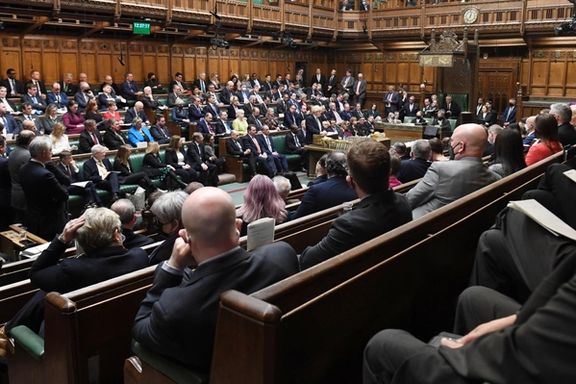UK Elections Drive Urgency to Proscribe Iran’s IRGC

As snap UK elections have been called for July, a group of over 550 politicians from across the political spectrum are making a last minute bid to proscribe Iran’s IRGC.

As snap UK elections have been called for July, a group of over 550 politicians from across the political spectrum are making a last minute bid to proscribe Iran’s IRGC.
It comes just days after yet another Iran-backed attack on protesters in London, standing against commemorations for the late president, Ebrahim Raisi, known as the ‘Butcher of Tehran’. The incident left one man with severe spinal injuries.
MPs and peers on the British Committee for Iran Freedom are pushing once again for the designation before the country goes to the polls as the issue becomes key policy for both the Conservative and Labour parties. So far, the Foreign Commonwealth and Development Office (FCDO) has resisted calls to proscribe, even though its ally the US has led the way.
Instead, the country has issued multiple rounds of sanctions against entities and people connected with the IRGC, Iran’s military wing at home and abroad. This month, foreign secretary David Cameron said sanctions are currently enough, leaving the door open to diplomatic channels to deal with one of the world's biggest nuclear threats.
The latest initiative is led by Tory MP Bob Blackman, a long-time supporter of the National Council for Resistance of Iran (NCRI), who has worked with the NCRI and the umbrella group The British Committee for Iran Freedom, to compile the list of supporters and the accompanying statements.
Prominent MPs include Tory MPs Sir Iain Duncan Smith, Tobias Ellwood, Vicky Ford, Liam Fox, Sir John Hayes, Caroline Nokes, and Desmond Swayne, and Labour’s former shadow chancellor John McDonnell.
If the move does not pass this last round, change may be afoot if Labour wins the polls with shadow foreign secretary David Lamb suggesting that under his lead, there could be a change of policy with many of the peers behind the latest project from the Labour party.
In addition to Conservative Lord Bellingham, Labour signatories include Lord Boateng, former Archbishop of Canterbury Lord Carey, Labour’s Lord Coaker, retired general Lord Dannatt, former attorney general Lord Goldsmith, Baroness Kennedy KC, former Labour leader Lord Kinnock, Lord Pannick KC, former deputy prime minister Lord Prescott, and Labour’s Lord Whitty.
Slamming Cameron's approach, Blackman said: “We have tried the current policy of appeasement for 40 years, and it has only resulted in failure after failure, simply emboldening the regime in intensifying its nefarious conduct.
“It should be coupled with holding the regime accountable, including by designating the IRGC as a terrorist entity, a step long overdue. That would send a clear message to the ayatollahs that business as usual is over and would signal to the brave Iranians that the West has started to be on their side.”
Earlier this month, Prime Minister Rishi Sunak named Iran as one of the states posing direct threats to Britain, alongside Russia, China and North Korea.
Last year, British security services MI5 admitted that Iran was among the country’s biggest state threats after a string of attempted assassinations had been revealed on UK soil.
Blackman said proscribing the group “would have a huge impact on the regime’s schemes to skirt sanctions and finance its repressive forces at home and proxy groups all over the region.”
As more details come to light of Iran’s backing of the likes of Hamas in Gaza, which invaded Israel on October 7, sparking the current war, there are growing calls to proscribe the IRGC which is essentially a self-ruling body under the command of the Supreme Leader, Ali Khamenei.
The IRGC controls massive amounts of economic policy in Iran in order to redirect funds to military uses such as proxy activities with Iran’s militias such as the Houthis in Yemen, currently blockading the Red Sea in support of Hamas, and Hezbollah in Lebanon, also waging war on Israel’s northern front.
The IRGC has been linked to multiple high profile assassination attempts including a former Spanish MEP and vice president of the European Parliament.
If proscribed, they would be denied access to international funds and their links to Iranian government activities abroad would be severely curtailed.
Among those targeted by regime agents in the UK were members of the Iran International team. The Metropolitan Police admitted that threats had become so dangerous last year that they could no longer protect the offices in West London, forcing the team to temporarily relocate to the US while security measures were ramped up.
In March, Pouria Zeraati, the television host of the Last Word program on Iran International, was attacked by a group of what were believed to be Iran-backed agents in London.